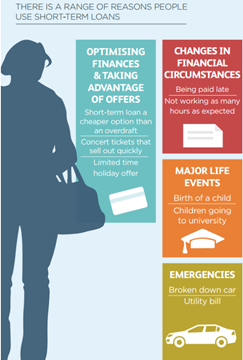Dealing with tough brand new laws, a few of the nation’s biggest banking institutions, including Wells Fargo, stated Friday they are abandoning a short-term, high-interest loan item that customer groups have actually called a financial obligation trap.
The exit of Wells Fargo, Fifth Third, Guaranty Bank and U.S. Bank could possibly be a harbinger of items to come as banking institutions anticipate tougher guidelines on a myriad of customer items, including cards that are prepaid.
The top banking institutions would be the latest, after areas Financial Corp. this week, to discontinue “deposit advance loans,” that are associated with customers’ paychecks, federal federal government benefits or other earnings straight deposited in their bank records.
an amount of advocacy teams have actually decried the merchandise for carrying the exact same interest that is triple-digit and balloon re payments as payday advances. Meanwhile, regulators have cultivated cautious about the soundness and safety dangers posed by the loans.
The problem reached a climax in November, if the workplace associated with Comptroller regarding the Currency and also the Federal Deposit Insurance Corp. imposed tighter limitations in the loans. Regulators didn’t club banking institutions from providing the item, however the rules that are new strict sufficient to result in the type of company untenable, banking institutions state.
“The guidance prefers a framework that is basically unique of our present service,” Wells Fargo spokeswoman Richele Messick stated within an email. “It favors a loan that is closed-end and our present solution is an open-end personal credit line.”
The OCC therefore the FDIC, for instance, required banks to implement a “cooling-off period” that will avoid borrowers from taking one or more deposit advance loan within a pay cycle that is monthly. That guideline ran counter to Wells Fargo’s training, which permitted clients to simply simply take advances that are small required, Messick said.
Beginning Feb. 1, new checking reports at Wells Fargo won’t be qualified to receive direct-deposit advances. The financial institution, that has provided the solution since 1994, stated no instant modifications are prepared for current loan clients, who can have the ability to access the solution until mid-year. Wells Fargo stated it’s focusing on a change policy for those customers.
Kent rock, vice president of customer banking at U.S. Bank, stated their business is “committed to locating brand brand new solutions that meet with the requirements of most of our clients and fit inside the present regulatory objectives.” The lender will not provide its “Checking Account Advance” service to new clients as of Jan. 31.
Fifth Third Bank stated it will probably stage its service out by the finish of the season and it is developing alternate services and products. “The Bank was monitoring industry developments and has now proactively involved with stakeholders since it has looked over the clear and continued requirement for little buck, short-term credit solutions because of its clients,” the business stated in a declaration.
Guaranty said checking records started after Jan. 31 will never be entitled to the solution. The financial institution “is dedicated to assisting hardworking families achieve their economic ambitions and meeting their credit needs,” the business said in a declaration.
Aided by the departure of U.S. Bank, Fifth Third, Guaranty and Wells Fargo, the actual only real bank left that’ll be providing deposit advance loans is Bank of Oklahoma. Bank officials stated they usually have no plans that are immediate end their solutions.
“Forcing banks using this company limits choices for consumers and pushes them towards payday lenders and fly-by-night entities,” Richard Hunt, president and chief executive regarding the customer Bankers Association, stated in an email. “While federal regulators encourage banking institutions to provide customers in need of assistance, their actions and policies recommend otherwise.”
A report because of the customer Financial Protection Bureau unearthed that over fifty percent of directВ-deposit borrowers took down improvements totaling $3,000 or higher. Of these borrowers, a bulk reduced one loan and returned for the next within 12 times. The borrower that is average away 10 loans in per year and paid $458 in costs.
Members typically spend as much as ten dollars for each and every $100 lent, because of the knowing that the mortgage will likely to be paid back making use of their next deposit that is direct. In the event that deposited funds aren’t adequate to cover the mortgage, the lender takes whatever cash will come in and tacks on overdraft charges and extra interest.
At the least 15 states have banned the loans, while a few other people have actually imposed strict legislation to restrict the attention prices as well as the amount of loans which can be made. Customer teams are looking forward to the CFPB  , which includes authority over storefront and bank payday loan providers with increased than ten dollars billion in assets, to create brand new guidelines to govern the industry. The bureau has stated it takes up the problem in 2010.
, which includes authority over storefront and bank payday loan providers with increased than ten dollars billion in assets, to create brand new guidelines to govern the industry. The bureau has stated it takes up the problem in 2010.
“We are encouraging the banking institutions we supervise to produce brand brand brand new and revolutionary programs to meet up the small-dollar credit requirements of the clients with techniques that don’t carry the possibility of developing a period of high-cost debt,” Comptroller regarding the Currency Thomas J. Curry stated in a declaration.
